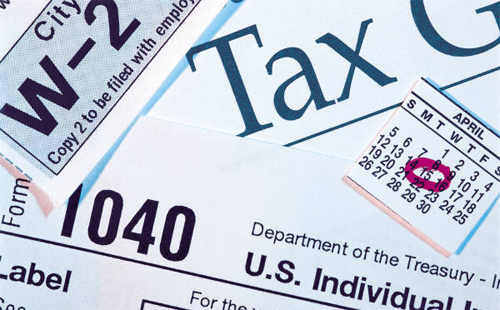By Corrine Bylund
When you are divorced, or in the process of divorce, your filing status and your deductions aren’t as sure as death and taxes.
In this article, we’ll address the three most common questions facing divorced, or divorcing, couples when it comes to taxes:
- What is my filing status?
- Who gets to claim the children as dependents?
- Is child support tax deductible?
What is my filing status?
If you are still married, you are either filing “Married – Joint” or “Married – Filing Separately.” If you are divorced, even if you were married for a portion of the tax year, you cannot file as though you are married. All of your options should be explored with your tax preparer. Filing jointly is not always the best option for couples that are divorcing.
Who gets to claim the children as dependents?
If you are still married and you file jointly, this isn’t a problem. If you choose to file “Married – Filing Separately,” the parent who had temporary custody for the majority of the year or the parent who provided the majority of the support for the minor children gets to claim them. That can be a tricky situation, especially since it is likely that the children were living with both of you for a part of the year. Consult your attorney and your tax professional before filing your taxes.
Filing separately and claiming the children as a way to get back at your spouse can backfire if your spouse’s return doesn’t match yours. For example, you can’t both claim the children. If this happens, it will probably trigger an audit. You don’t want to be audited. If you cannot agree between you and your spouse, you should involve your attorneys in negotiating filing status and claiming dependents.
If you are divorced and your decree says nothing about who gets to claim the minor children on their taxes, then the parent who was awarded custody, primary residential responsibility or majority timesharing gets to claim the children.
If your decree has you alternating years in which to claim the children, it will be necessary for the IRS to have documentation as to which parent claims the children. If you were divorced between 1984 and 2009, the parent claiming the minor children can still attach the portion of the decree, which states he or she can claim the children in that year. If your decree was entered in 2009 or later, the parent with majority timesharing must cooperate by signing Form 8332 releasing his or her exemption.
Is child support tax deductible?
No.
If your divorce is still pending, you can still make sure that these issues are addressed properly in your decree and you should discuss all of your options with your attorney. The IRS and its rules are federal and a divorce decree is derived from the State. Federal rules trumps state decrees so knowing the federal rules, despite what it states in your decree, is in your best interest.
Corrine A. Bylund, Esq., is an associate attorney with Zisser, Robison, Brown, Nowlis, Maciejewski & Cabrey, P.A. Cori has practiced exclusively in the area of family law since she became an attorney in 2005. Cori lectures for the National Business Institute and the Institute for Paralegal Education. She is also licensed in Wisconsin.

